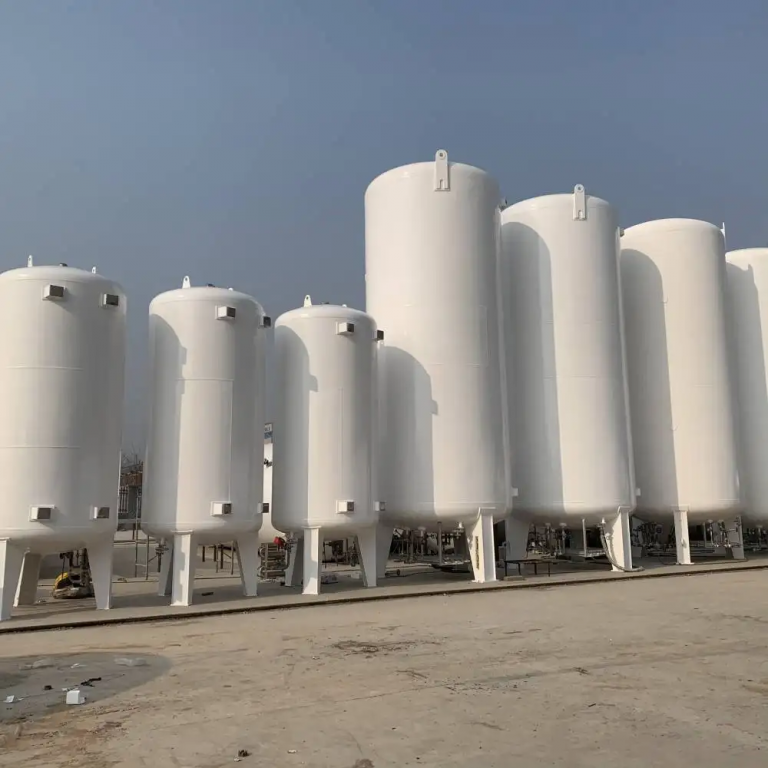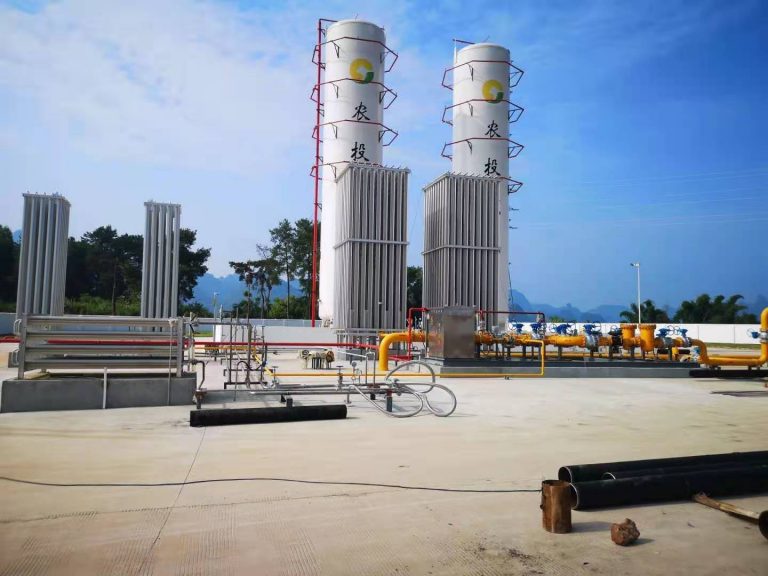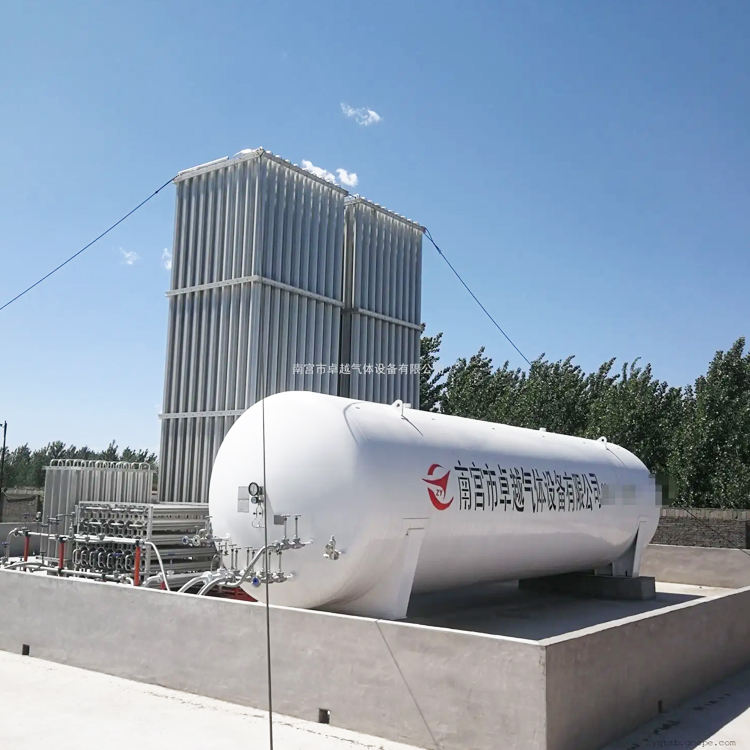Skip to content
I. Structural Integrity Check
1.Piping & Tank Condition
- Daily inspection for air leakage at pipe joints
- Visual check for abnormal frost formation or condensation (commonly called sweating)
- Focus on welded seams, valve connections, and high-risk areas
2.Insulation System Verification
- Powder-insulated tanks: Maintain sealing gas pressure at 0.05-0.15MPa
- Monthly vacuum measurement (standard ≤5Pa) using specialized equipment
II. Medium Quality Monitoring
1.Weekly Mandatory Tests
- Acetylene content detection (safety threshold <0.1ppm)
- Total hydrocarbon analysis per GB/T 3863-2008
- Strictly control acetylene concentration below 0.1×10⁻⁶(v/v)
2.Liquid Level Control
- Overflow rate must never exceed 95%
- Implement dual-level gauge comparison for accuracy
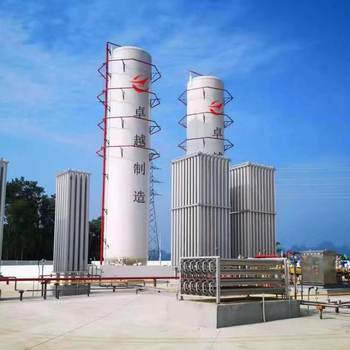
III. Instrument Calibration
- Daily DCS vs. field instrument deviation check (±1.5% tolerance)
- Pressure gauges/level meters must display recent calibration tags
- Establish three-tier instrument failure response system
IV. Safety Management
1.Restricted Zone
- Prohibit flammable/explosive materials within 10m radius
- Install electronic fencing and fire alarm systems
2.Valve Status
- Color-coded valve status management system
- Monthly operational torque testing
3.Grounding System
- Grounding resistance ≤4Ω (pre-rainy season inspection required)
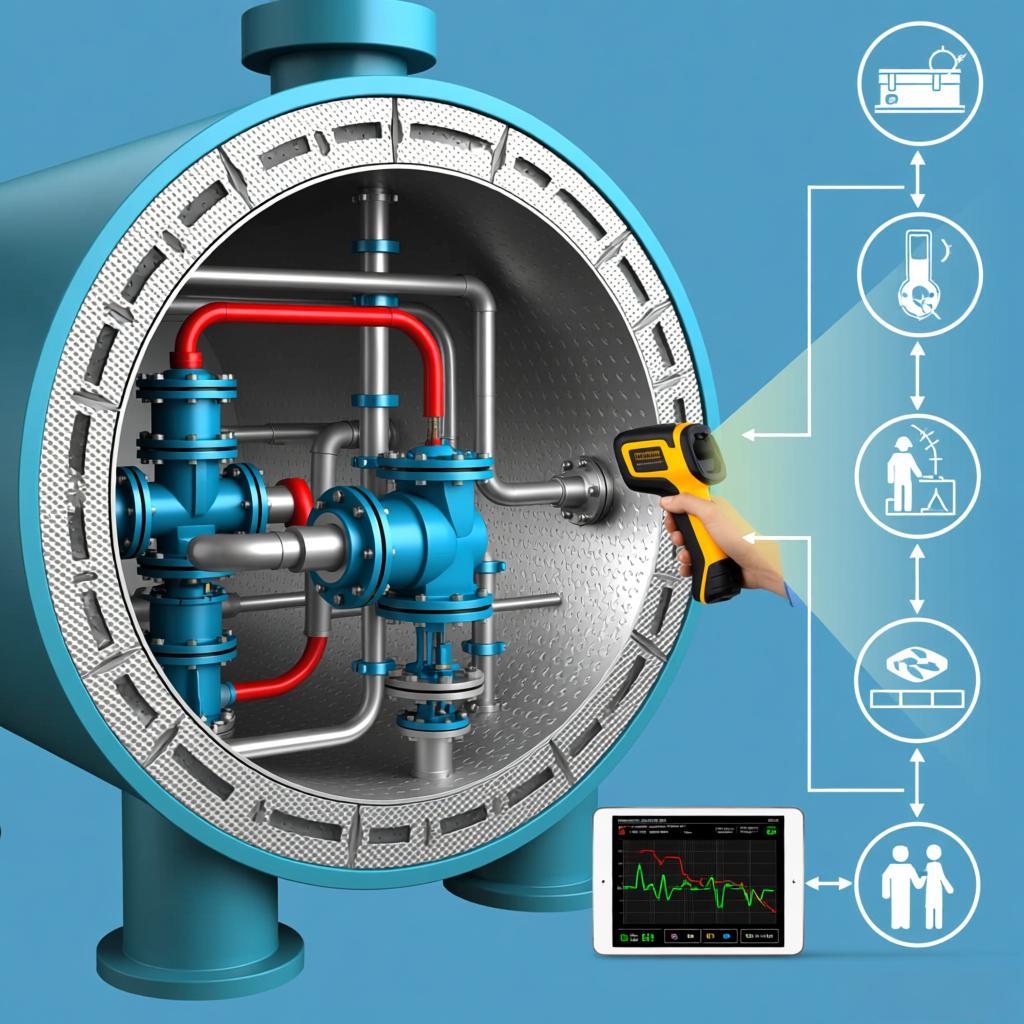
V. Documentation Standards
- Digital inspection system with:
- Timestamped records
- Photo documentation of anomalies
- Electronic inspector signatures





